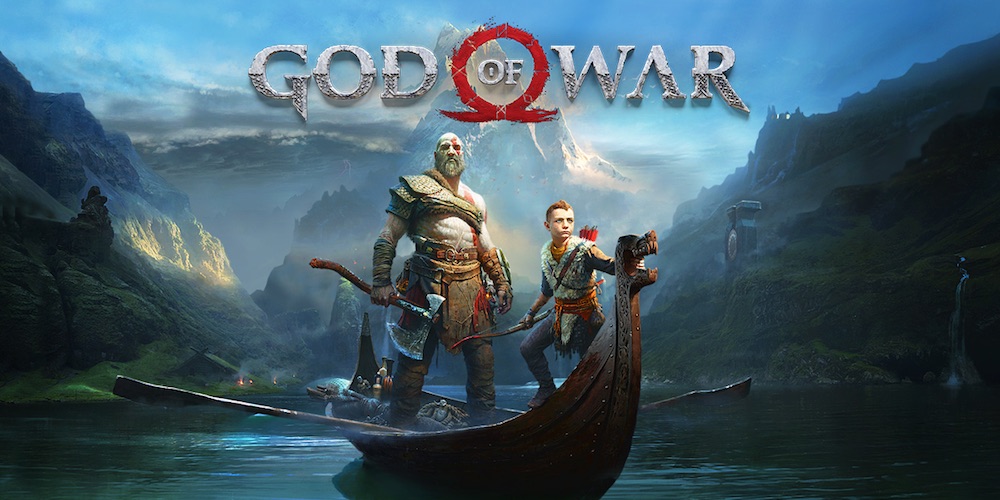
God of War certainly isn’t the first game from a long-running series to strip the number from its title and attempt to be reborn. With such a cataclysmic conclusion to its exponentially destructive saga, and a gradual grind into monotony – after relying on the same conventions for so many games – the franchise had little choice for success but to reinvent itself. God of War is much bolder and more ambitious than other attempts such as DmC or Tomb Raider, though. This isn’t a reboot, a reimagining or a retelling of its predecessors – this is a sequel. Where the series was painted into a corner, Santa Monica Studio refuses to clean the slate and start again but instead continues painting over its previous work. Thankfully, they were capable of executing this precarious task to a result that wasn’t a messy, uneven mass, but an elegant and layered game that outright outdoes what came before.
Kratos has matured in his new home in the woods of Midgard, where he and his son Atreus mourn the passing of their wife and mother. The boy and his father are left with her final wish; for her ashes to be scattered from the highest peak in the realms. This personal and selfless objective is one of many clever opportunities for The Ghost of Sparta to be better than he once was, as his previous wife and daughter’s ashes still mark his skin as a reminder of his mistakes. Kratos isn’t proud of who he was or what he’s done, and his greatest concern is to ensure Atreus doesn’t follow in his footsteps, despite not knowing of his father’s vengeful past.
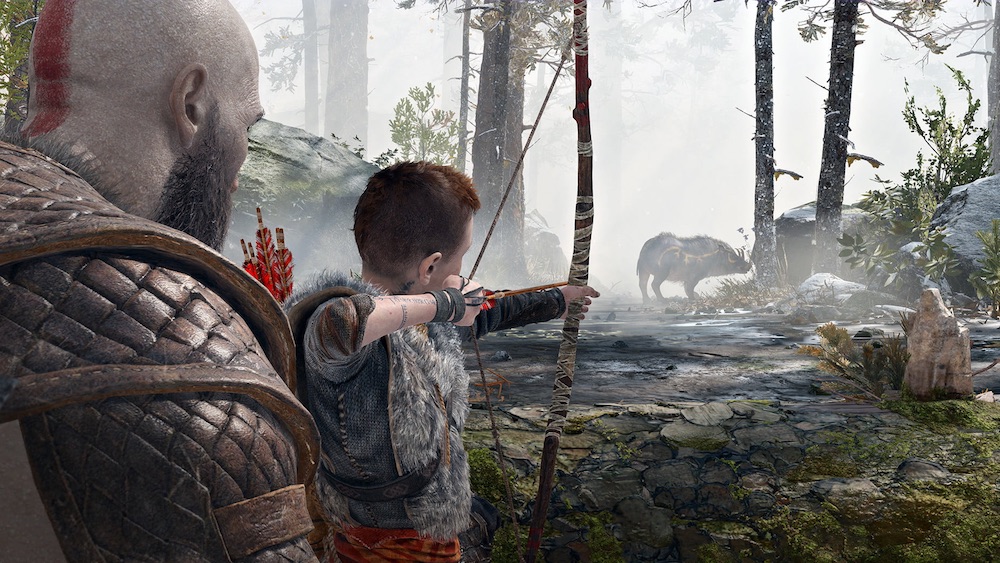
God of War quickly establishes a simple but powerful scenario for each of these characters and their relationship to grow and continues to add layers, characters and motivations as they undergo their journey. Some who oppose and some who assist Atreus and Kratos act as blatant foils to the protagonists, but concise and subtle writing – almost the antithesis of the God of War of the past – keep the consistent symbolism and allegory to thoughtful and purposeful instances, while communicating their message perfectly clearly.
This masterful quality of writing applies, too, to the lore that cohesively and acutely builds the Nordic Realms. Whether it be through story-important dialogue, mid-game conversations between characters or journal entries made by Atreus, every relevant piece of information is communicated quickly, understandably, and in context. Even describing an entire, gargantuan mythology that hones in as specifically as each enemy encountered, God of War gave me a tremendous amount of information while remaining entirely engaging every sentence of the way.
This reverent brevity makes for a truly encompassing setting while allowing for Kratos’ history to exist gracefully within the fiction as all other elements do. Never is the series’ already sprawling narrative explained herein – and never does it need to be – yet it certainly isn’t ignored or mistreated. God of War doesn’t just find a way to tell a story that makes sense after the events of God of War III and prior, but rather, tells one that is powerful because of them and embraces their existence.
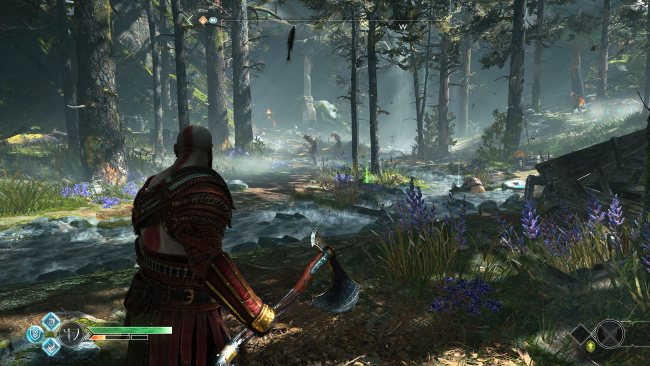
The maturation of Kratos is reflected too in how he plays. Gone is the fixed camera of the previous six games, the jump button and the red orbs. Combat is much more deliberate and precise here, slowing the pace and focusing in on the action. Managing enemies that may not stay in your line of sight and controlling your distance between them creates tense and focused battles, where even taking down a couple of weaker foes can feel like a brilliant execution of choreography.
Like past GoW titles, avoiding taking damage is the key to success more so than attacking in particular or complicated ways, but Kratos’ offensive and defensive capabilities are considerably more dynamic and variable here. Throwing Kratos’ Leviathan Axe as a ranged attack is an awesomely satisfying way to finish off a weakened monster while using it to trip over or freeze a baddy in place while you deal with other threats is an effective way of keeping control of the arena.
Kratos can recall the axe to his hands after throwing it, but there’s no rush seeing as his capabilities while unarmed are comparably robust. Fists won’t match the damage of the Leviathan Axe, but they will inflict greater stun damage on foes, setting up classic God of War finishers, so knowing when to bare-knuckle brawl some guys can go a long way. Defensively, Kratos bears a shield that can be used to block or parry incoming attacks. Used thoughtfully along with evasive rolls, negating damage taken can be as involved as it is valuable. Atreus helps in combat too, firing arrows to interrupt enemies on command and helping out in a number of ways depending on the gear with which he’s equipped.
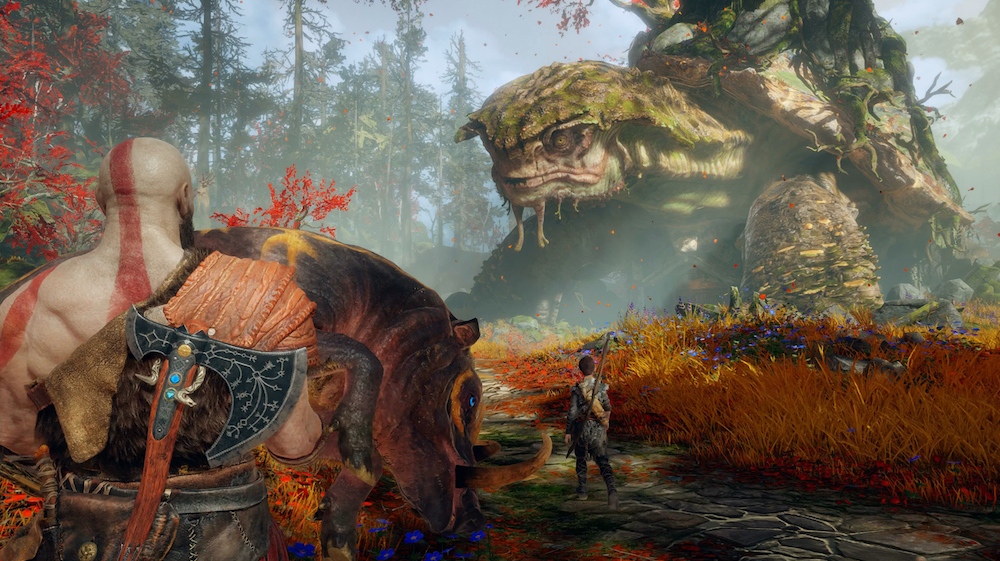
Combo moves in the form of strings of specific button inputs are hardly relevant here, with attack options instead being specific movements that each string together easily. As Kratos’ move-set grows through learning new abilities with XP, the player’s options expand considerably. These more advanced techniques are simply triggered by combinations of existing moves that makes sense; sprinting into a light attack will perform a charging attack, for instance. There’s no need to check on combo lists or button inputs when everything is executed in simple, logical ways, and it means experimenting with different approaches doesn’t require memorising a whole new set of moves. In place of the earnable special moves of previous GoW games are Runic Attacks. One light and one heavy Runic Attack can be equipped at a time, with a bunch of options available to discover, and swapping these out can noticeably change up your approach to combat.
Along with earning new abilities and upgrades with experience points, resources and Hacksilver can be used to craft and trade for gear at vendors. Kratos and Atreus can swap out their armour and upgrade their weapons to maximise their attributes. This makes for a rewarding progression throughout their journey as the pair earn tougher and tougher gear to match their opposition, and especially incentivises exploration and completing Favours (side-quests) to earn the resources needed for the greatest goodies.
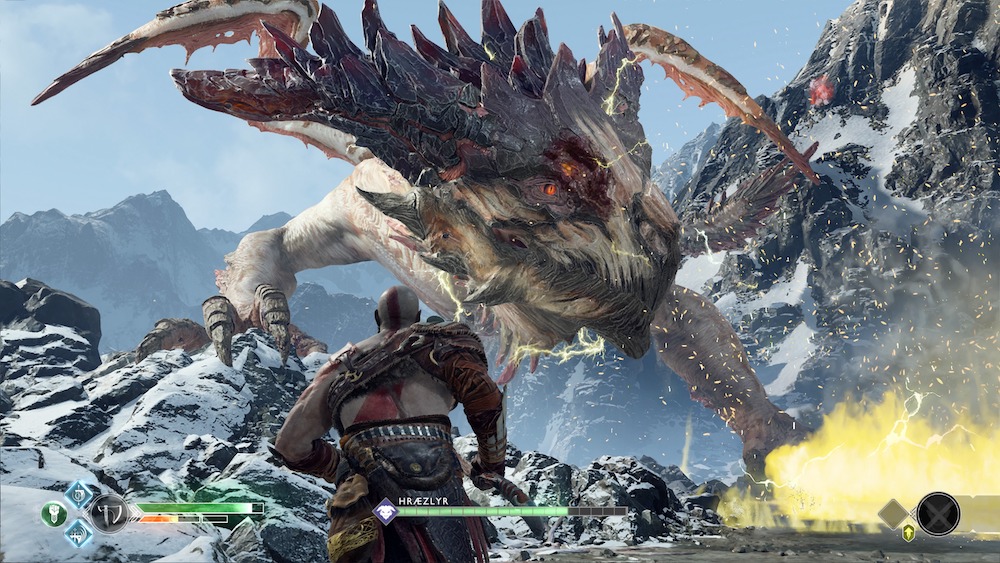
Exploring in God of War is a significant and wonderful component of the game. Where the series has driven Kratos through labyrinthian architecture with interwoven paths consistently, it has never trusted the player to choose their own paths until now. The key environments of the game, while generally linear, are littered with forking paths and hidden secrets. Finding a valuable chest here isn’t just a case of breaking through some conspicuous planks or checking around a dimly lit corner this time. Instead, it often comes as a reward for following a lengthy path away from the objective or solving a puzzle or two. Broader areas allow for and encourage exploration totally separate to the main journey, offering a myriad of puzzles, secrets and favours to be discovered.
Travelling back to previously visited areas with new capabilities or context has been an awesome element of the franchise, especially God of War III, but we were only able to do so when the enclosed paths lead us back. This time, obstacles are in place along the critical path that cannot be overcome until later, and travelling back to deal with them when capable is left the player. Optional encounters are handled in the same way. Certain enemies can be tackled as soon as you reach them – at great difficulty – or left to return to with some better gear later if you like. Importantly, besting these challenges rewards suitably valuable prizes which won’t seem quite so special if you return once you’re all decked out. Conquering optional tasks as early as possible makes for a much more challenging and much less time efficient playthrough, but the rewards and satisfaction of doing so make it feel absolutely worthwhile if you’re so inclined as I was.
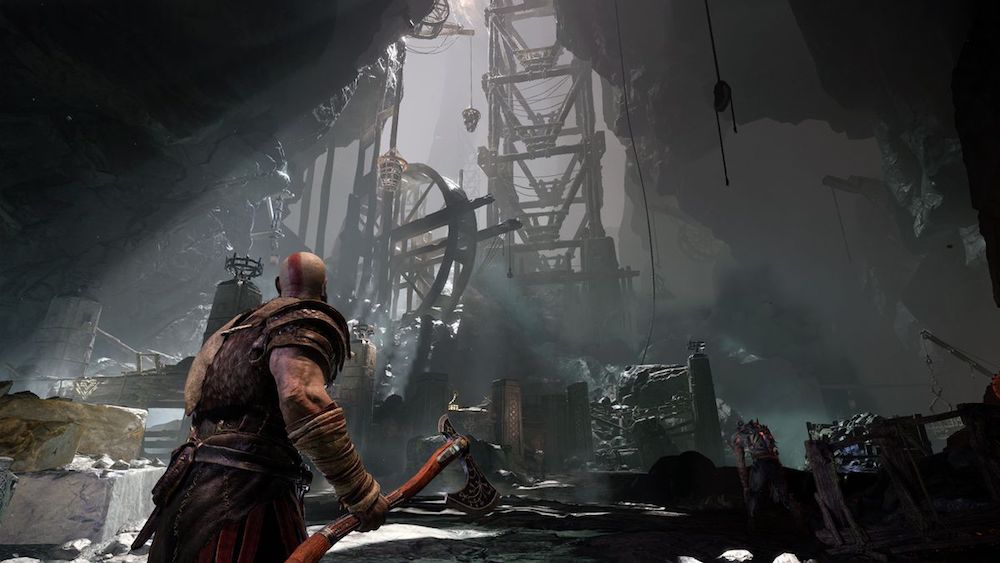
Puzzles are an important piece of God of War’s DNA, and this latest outing inherits the best of its parents. Most of these environmental obstacles or cleverly closed off passages are brief and simple conundrums to overcome, yet the solutions require a moment of thought that tickles the brain on discovery. Throwing the Leviathan Axe in conjunction with operating machinery or creating paths in a correct order to move items around make for quickly understandable dilemmas, but besting them often requires perceptiveness, investigation and strategy.
All of the exceptional qualities I’ve discussed aren’t just confined to the main journey but are entirely present through the game’s several Favours too. These side objectives offer some of the greatest insight into the world’s mythology while having important and weighty relevance to Kratos and Atreus in a broad variety of ways. Favours consistently surprised me, leading me to unexpectedly large portions of the map with so much to do, explore and learn of. Not only do they not feel like excuses to keep the player busy, but many of them are as crucial to and representative of God of War as any of the primary tasks.
Holding all of these components together so well is the consistent high quality of the game’s presentation and the engaging and immersive extra details that go the extra mile. The wondrous diversity of its natural settings and the grand scale of its elegant architecture build a visually remarkable environment, while excellent performances and writing had me overwhelmingly invested in the characters and their story. The ongoing banter between Kratos and Atreus as well as their conversations with other characters are contextual to what the player is doing and what they’ve already done, so everything always makes sense and comes out at appropriate moments. After hours heading back and forth to different secrets and new areas to explore, I’ve heard dozens and dozens of conversations that not only build the lore but communicate so much about the characters speaking – all without ever hearing a story repeated.
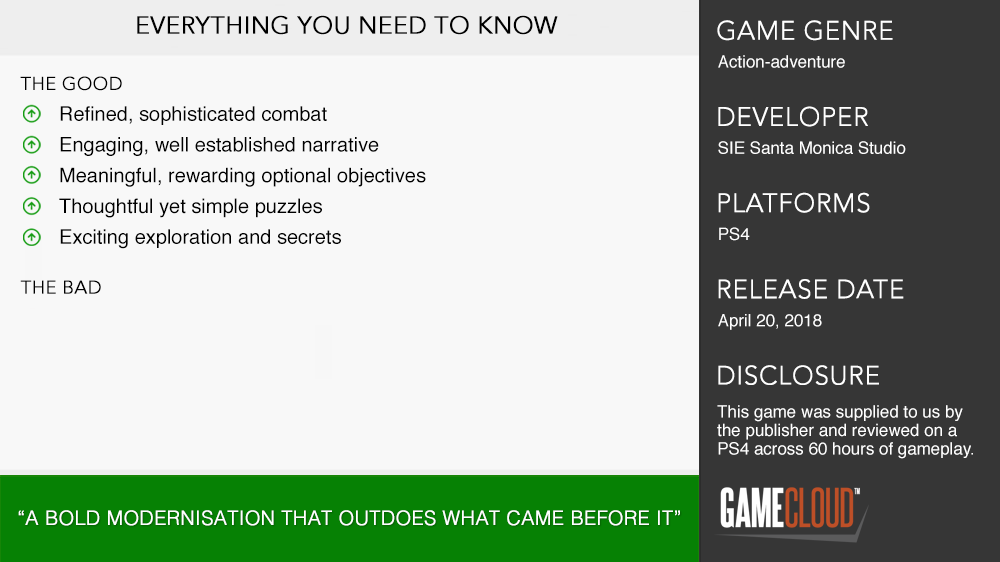
God of War is an exceptional game that modernises an antiquated formula while carrying forward and expanding upon the conventions that gave the series its own identity. Everything God of War is known for is here, but in brand new, elaborately constructed ways. Such reverence is given to the series’ history without fear of reinventing it, and the result is an incredibly high-quality experience far surpassing those that came before.











